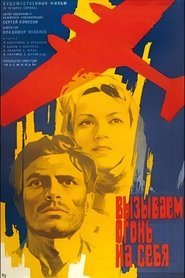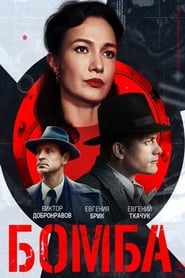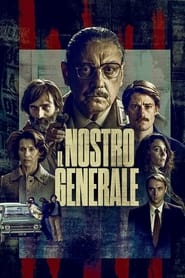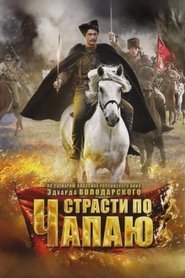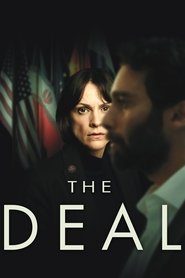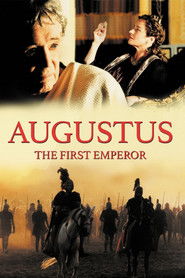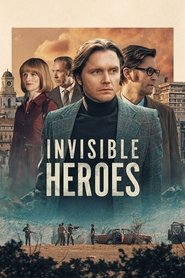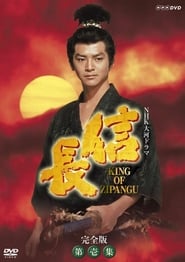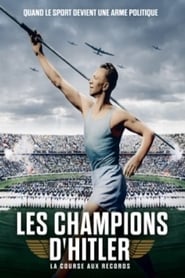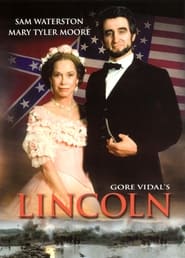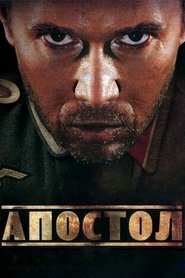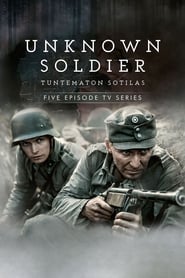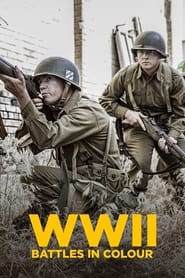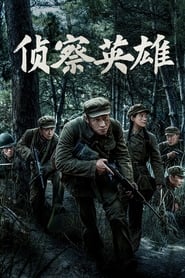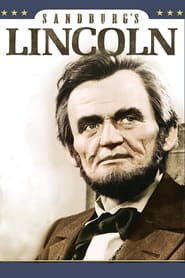War Politics TV Series - Page 42
-
Call Fire for Ourselves
1965
star 7In the Soviet airbase, occupied by the Nazis, a resistance group occurs, led by a modest girl Anna Morozova. For each victory (important, albeit small on a scale of the war) they have to pay a heavy price. -
Forward Forever
2020
Forward Forever
2020
star 7.5During a period of great unrest at the end of the Qing Dynasty and beginning of the Republic of China, two impassioned youth devote their lives to their country. -
Bomb
2020
Bomb
2020
star 8The brilliant scientist Mikhail Rubin ends up in the camp because of a personal conflict with the People's Commissar Beria. But suddenly Rubin is released: his best friend and colleague Kirill Muromtsev recommended Mikhail to a secret project to create a Soviet atomic bomb, and the physicist's candidacy was approved by academician Kurchatov. Mikhail returns to Moscow and finds out that while he was in the camp, his fiancee Anna Galeeva managed to become Kirill's wife. To fulfill the task of the state, young scientists will have to work together, despite the personal drama. -
Zorge
2019
-
The General's Men
2023
The General's Men
2023
star 6.2The efforts of a special paramilitary anti-terrorism unit set up in the 1970s by a high-ranking police official, Gen. Carlo Alberto Dalla Chiesa. -
Страсти по Чапаю
2013
Страсти по Чапаю
2013
star 5This is the very first feature to have ever told the story of the Russian revolutionary Chapaev in such a gripping and heart-stirring manner. The series takes us through the thorny days of the national hero as the numerous layers of love and hate, pride and shame, great victory and inconsolable loss unfold. The abundance of action and raw emotion enlighten the viewer about the innumerable twists and turns on the path to the final victory of the Red Army and Chapaev's agonizing solitude. -
The Deal
2025
The Deal
2025
star 6.9Geneva, April 2015. In the hushed corridors of a luxury hotel, high-tension international negotiations get underway between the United States and Iran, suspected of secretly developing the atomic weapon. Alexandra Weiss, head of the Swiss diplomatic mission, is trying to maintain a fragile balance between the parties operating behind the scenes. The unexpected arrival of her former love, Payam Sanjabi, an Iranian engineer whose life is under threat, will complicate her task dangerously... -
Augustus: The First Emperor
2003
star 4.9Old and ill, Augustus, the man who changed the fortunes and destiny of an empire by completing Julius Caesar's project, recounts the two most important phases of his life: his rise to power and his fight against the pressure of his family. -
Yi Zhongtian: Analysis of the Three Kingdoms
2006
star 9CCTV-10 Lecture Room series: Pin San Guo (品三国; Analysis of the Three Kingdoms). "Yi Zhongtian's Analysis of the Three Kingdoms" is a CCTV-10 historical broadcast program and one of the "Hundred Forums" series. The main speaker, Yi Zhongtian, restored the real Cao Cao, defended Zhou Yu's false accusations, spoke up about Zhuge Liang, and re-evaluated Sima Yi. When talking about the world, there are only three points of gossip. Discuss the merits and demerits carefully, and summarize the gains and losses of successes and failures. Professor Yi Zhongtian of Xiamen University will use stories to tell characters, characters to tell history, history to tell culture, and culture to tell human nature. Discuss the major events of the Three Kingdoms and carefully analyze the success and failure of the heroes. Professor Yi Zhongtian will explain it from a civilian perspective. -
Invisible Heroes
2019
Invisible Heroes
2019
star 7.4Invisible Heroes tells the heroic tale of young Finnish diplomats in Chile during 1973’s infamous military coup. Finnish diplomats Tapani Brotherus and Ilkka Jaamala along with Tapani’s wife Lysa Brotherus helped over 2000 left-wing Chileans escape the military junta’s persecution. The Finns acted without official authorization while Swedish ambassador Harald Edelstam was the most visible defendant of human rights with the backing of Sweden’s Prime Minister, Olof Palme. -
9th May. Personal Attitude
2008
A series of short films about the war, shot by young directors. Each of them had to fit their personal attitude to the Great Patriotic War into three minutes of screen time. -
Nobunaga: King of Zipangu
1992
star 10On March 23, 1585, Japanese Christian envoys visited Pope Gregory XIII at the Papal Court in Rome, Italy. The drama begins 45 years earlier - in 1540 outside Lisbon, Portugal. -
Jackie, Ethel, Joan: Women of Camelot
2001
star 4.1The stories of three women who married into America's royal family, and lived in the glory and the glare of the political spotlight. -
Lincoln
1988
Lincoln
1988
star 7.3The life of Abraham Lincoln, from his election as President of the United States to the time of his assassination. Based on Gore Vidal's historical novel. -
Apostle
2008
Apostle
2008
star 6.4At the beginning of the war, the Germans throw their saboteur into the USSR. The landing is unsuccessful - the spy is captured by the NKVD. When trying to escape, a saboteur who turned out to be a Russian thief in law, accidentally remaining in the occupied territory, dies. In order to find the other spies involved in the operation, the security officers have to turn to the criminal's twin brother, a rural teacher. He takes the place of the deceased in the German intelligence network and enters into a deadly game... -
Unknown Soldier
2018
Unknown Soldier
2018
star 7.4The Unknown Soldier miniseries expands the story of the 2017 film of the same name. The World War II series based on Väinö Linna's classic novel closely follows a machine gun company of the Finnish Army on the Karelian front during the Continuation War between Finland and the Soviet Union, from mobilization in 1941 to the Moscow Armistice in 1944. It's a story about how camaraderie, humor, and a desire to survive connect men on their journey. War upends the lives of both the individual soldiers and those left on the home front, and leaves its mark on the entire nation. -
WWII Battles in Color
2021
star 7World War II was marked by its epic battles, which decided the fate of nations and changed the course of history. From Germany's Blitzkrieg attacks on Poland that launched the European campaign to the Allied invasion of Berlin that signaled its violent end, we bring these seminal conflicts to life through never-before-seen colorized combat footage. This six-part series puts you in the center of the action through rarely scene films from the frontline plus personal memoirs and oral histories from both sides of the battle lines. -
Scout Hero
2024
Scout Hero
2024
star 10From the perspective of an explorer, the play tells the heroic story of Liang Chen, the chief of the reconnaissance section of a certain division of the Volunteer Army, who led a reconnaissance company as a vanguard during the War to Resist US Aggression and Aid Korea, and repeatedly relied on superior strategies and tactics to fight the US military. -
Lincoln
1974
Lincoln
1974
star 8Lincoln (aka Sandburg's Lincoln) is an American six-part miniseries broadcast on NBC from September 6, 1974 to April 14, 1976.
